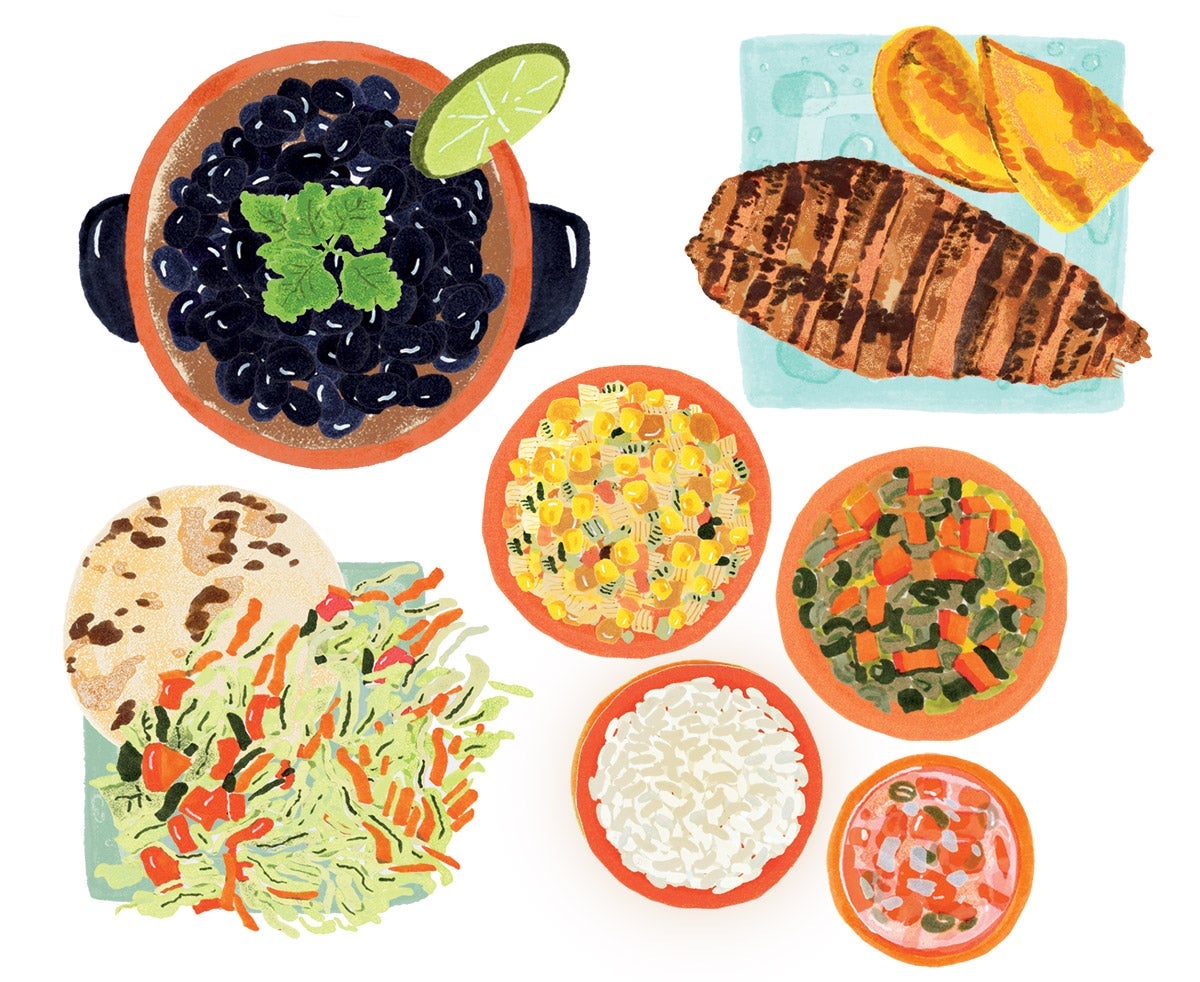Planetary Health Diet: Better for you, better for the planet

Researchers and chefs offer four takes on the sustainable, flexible eating pattern that Harvard Chan School experts dub the Planetary Health Diet.
September 12, 2024 – A diet with lots of whole plant foods and limited amounts of meat and dairy is a win-win—good both for you and for the planet.
People who follow this Planetary Health Diet (PHD) have a lower risk of every major cause of death, including cancer, heart disease, and lung disease, according to a recent study by Harvard Chan School researchers. They also found that widespread adoption of the diet would lead to substantial reductions in greenhouse gas emissions, fertilizer needs, and cropland use.
The PHD is based on recommendations from the landmark 2019 report by the EAT-Lancet Commission. Walter Willett, professor of epidemiology and nutrition, played a lead role in that report and its update, expected next year.
“Climate change has our planet on track for ecological disaster—use of fossil fuels is the largest contributor, and our food system plays a major role,” says Willett. Luckily, he says, “a diet that’s healthiest for the planet is also healthiest for humans.”
Importantly, the PHD does not provide a universal template for what to eat, but rather a framework that is flexible to differences in cultural preferences, nutritional needs, and food systems. Researchers—including students of Christopher Golden, associate professor of nutrition and planetary health—and chefs and culinary historians have been translating the PHD to a variety of cuisines from around the world. Practicality and affordability are important considerations. As Golden’s collaborator Abrania Marrero, PhD ’22, postdoctoral research fellow in the Department of Nutrition, notes, “Without centering equity, food-system transformations risk hindering human and planetary health.”
Read advice on putting the Planetary Health Diet into practice on your plate from Willett, Golden, and Frank Hu, Fredrick J. Stare Professor of Nutrition and Epidemiology and chair of the Depatment of Nutrition and learn more from Harvard Chan School’s The Nutrition Source.
Pictured in the gallery below are four examples of PHD family meals using foods from traditional dietary patterns.




Illustrations: Grace Lee